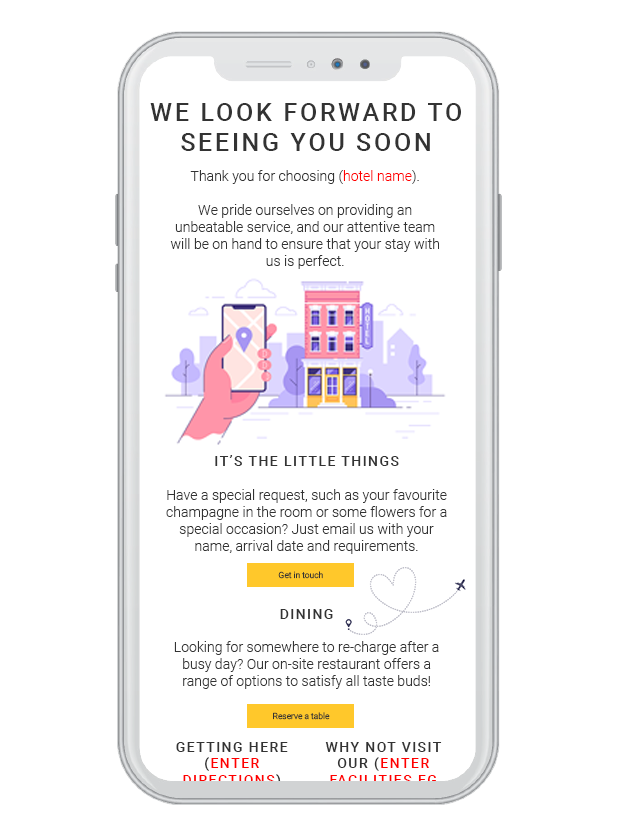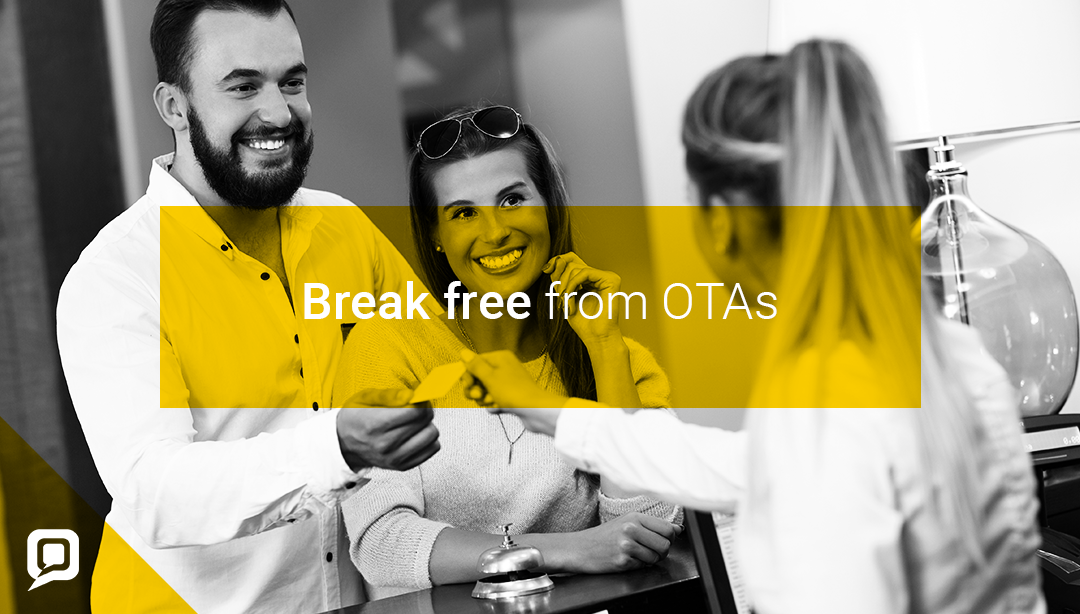On average, 76% of online bookings are made through OTA sites rather than directly through the hotel.
Through a number of techniques and practices, the OTA model encourages consumers to be fickle with their booking commitments, with one in five of these reservations falling through.
Cancellations are unavoidable to a certain extent, but when those ‘no shows’ are causing your hospitality business to regularly lose out on revenue, what can you do to combat the problem?
%
Of online bookings come from OTAs
Why pressure tactics don’t work
When looking into hotel cancellation sources, there’s a significant difference between OTAs and direct bookings, with Booking.com at 57%, Expedia at 26%, and hotel websites at 14%.
Hotel comparison sites have faced considerable backlash over the last few years, with a recent investigation from Britain’s competitive watchdog finding that “pressure selling” techniques and “search misrepresentation” were rife amongst well-known OTAs.
As a result, it’s been estimated that 43% of consumers booked in error when using a comparison site because “they were in a rush”, with others feeling pressured to “secure a deal” (25%), or simply failing to pay attention (50%).
Whilst these techniques will lead to more bookings initially, they will also result in a far greater cancellation rate. And considering that you’ll often receive very limited information about that contact, you will also lose the opportunity to encourage them to rebook.
To reduce cancellations from hasty OTA bookers, you need to ensure that your hotel or restaurant is accurately represented on OTA and central booking sites, and that your website is packed with value-adding content that they can find organically.
By updating your online presence with your latest menus, events and offers, you’ll enable your prospective guests to make an informed decision about their next stay.
If a customer is on the fence and ready to cancel, nurture that relationship by sending them a welcome email, reinforcing the details of their booking and telling them more about your business.
Showcasing reviews from past guests will also alleviate any customer concerns, as it provides them with the chance to see your business in a positive light.
%
Believe OTAs give them "better value for money"
Finding the true source for ‘best value’
When looking for accommodation, 96% of Brits prioritise getting the best deal.
Even though half would feel more secure booking directly, only 15% will do so, as they think they’ll get a better offer from an OTA.
Some of the most common ploys used by comparison sites result in many holidaymakers not getting the deal they thought, for instance, with inaccurate countdowns and fake discounts.
In most cases, the hotels listed at the top of OTA sites have gained that prime spot by paying twice the standard commission rate – which can be as much as 40% – and leads customers to believe that the hotel is more popular than it is.
For your price-sensitive guests, we recommend the following steps:
-
Continually develop your online and offline marketing, drawing particular attention to your offers and exclusive packages.
-
Implement a loyalty scheme to reward returning guests, with the added benefit that these programs reduce the likelihood of your customers putting a lower price over the value that you provide.
-
Ramp up your promotions during slow periods.


